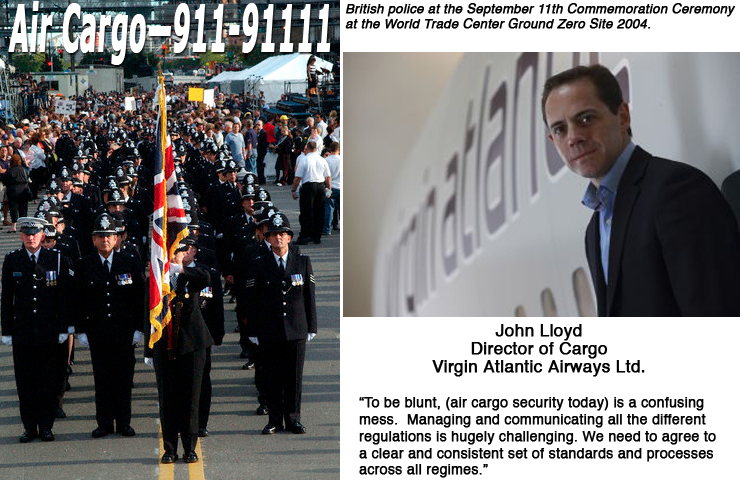
(On September 11, 2011)
I was playing golf! We were hosting some Japanese customers in London
and we were being soundly beaten. We took a break after 9 for drinks
and that’s when the barman said “a plane has flown into
the World Trade Center.”
All of us thought that maybe there had
been an accident involving a light aircraft. Then we turned on the television.
We all just stood watching, totally stunned and unable to comprehend
what was unfolding in front of our eyes.
Watching the horrific scenes, my immediate
thoughts were obviously for all the people involved, and trying to guess
what was going on. Who would do this and why?
I have to be honest – I definitely
underestimated the number of people in the towers. I’m not sure
why as I’d been there many times, but only then did it hit me,
in terms of the scale, what we were watching. The inevitable happened
as the hours passed. The phone started to ring and the practical reality
of trying to manage an airline operation through this kicked in. Is
our staff all ok? Where are our aircraft? Are there more attacks to
come? What are we being told by the authorities?
It was incredibly hard to focus on business when you knew thousands
of people had lost their lives.
The world changed that day. Its impact
was felt globally and, of course, the cargo industry has never been
the same since.
Why do people use air cargo? Speed to
market. Anything that impacts this, however justifiable the reason,
means air cargo loses some of its competitive advantage. Safety and
security have always been a top priority for the aviation industry,
but since 9/11 the restrictions have had much more impact and are very
noticeable to the customer.
Today, we all understand that the most effective
screening of passengers and cargo is now more important than ever. What
is frustrating is that there is so much experience and expertise in
the industry that is not being properly used to help develop solutions.
Also, in the aftermath of 9/11, airlines had to dramatically control
costs and the industry lost a lot of really good people through cutbacks,
which was incredibly sad.
To be blunt, (air cargo security today)
is a confusing mess. Managing and communicating all the different regulations
is hugely challenging. We need to agree to a clear and consistent set
of standards and processes across all regimes.
Let’s face it: the situation is only
going to get more challenging in the future. We also need governments
to recognize the economic value of air cargo and assist in investment
in technology to speed up the screening processes.
|




